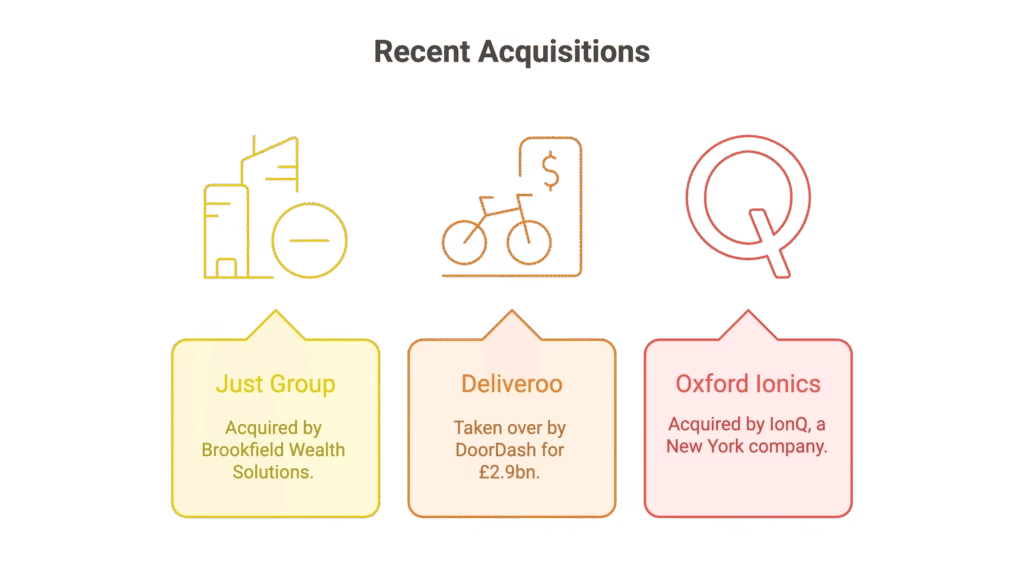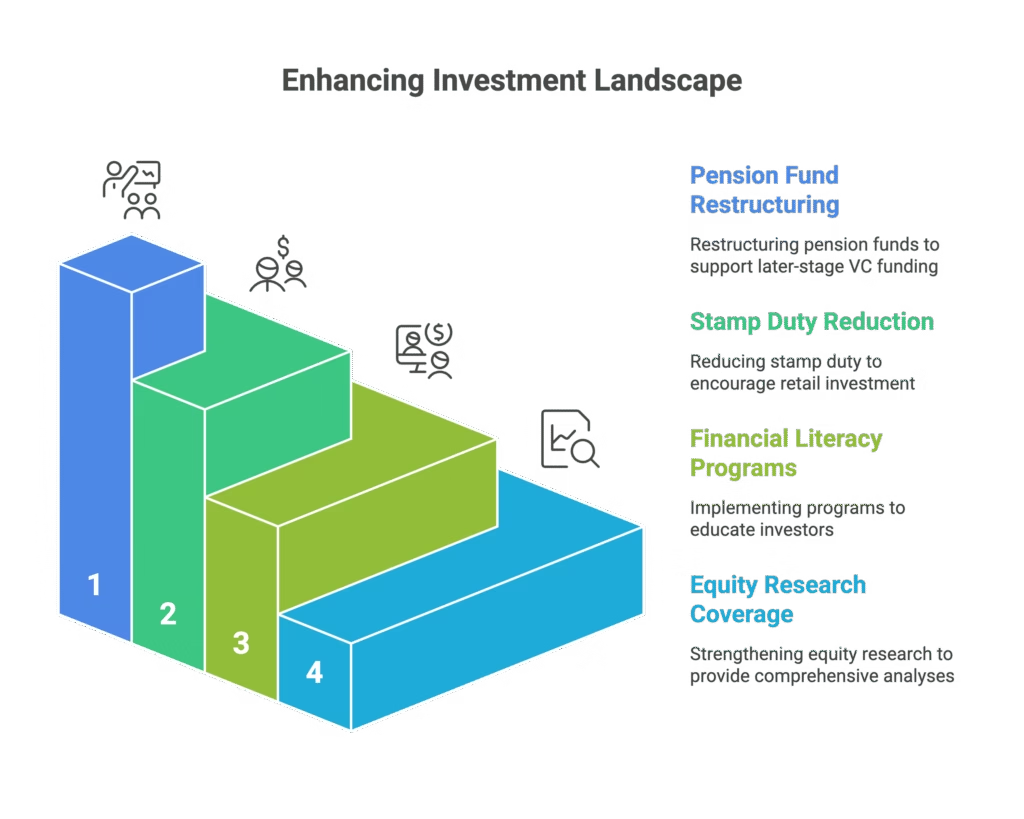The Problem: Britain’s Becoming a Startup Factory for Foreign Buyers
Here’s a stat that’ll make you spit out your morning coffee: nearly 80% of UK venture capital investors have never backed a unicorn (companies worth $1bn+). Meanwhile, American buyers are having a field day snapping up British firms at bargain-basement prices.
The UK’s got a serious problem. We’re brilliant at creating innovative startups, but we’re terrible at scaling them into global champions. Instead, we’re becoming what experts call an “incubator economy” – we nurture companies from birth, then watch helplessly as foreign investors swoop in and take them home.
Think of it like raising a prize-winning racehorse, only to sell it to your competitor right before the big race.
Why Foreign Buyers Can’t Resist “Bargain Britain”
The Numbers Don’t Lie
Foreign takeovers are set to push UK M&A volumes above £50bn this year, with American companies leading the charge. In just 24 hours recently, three major tech deals worth £6.3bn hit London’s market.
Some recent casualties include:
- Just Group: Snatched up by Canadian giant Brookfield Wealth Solutions
- Deliveroo: Going private in a £2.9bn takeover by US rival DoorDash
- Oxford Ionics: The UK quantum darling grabbed by New York’s IonQ
The Valuation Gap
British public companies are trading at massive discounts compared to their American counterparts. It’s like having a “50% off everything” sale that never ends – no wonder foreign buyers are queuing up.
Julia Hoggett, CEO of the London Stock Exchange stated: “We have no shortage of consequential companies scaling at pace. But we’ll do them a disservice if we don’t back them with domestic risk capital.”

The £1 Trillion Solution: Pension Power
Super Funds to the Rescue
The Purposeful Company think tank has a bold plan: create pension “super funds” that could unlock £1 trillion for the UK tech sector. The idea? Use our own pension money to back our own companies instead of letting them slip away to foreign buyers.
This isn’t just about keeping companies British – it’s about economic survival. As Will Hutton, co-chair of the Purposeful Company, warns: “Britain is at five minutes to midnight.”
What Needs to Change
The proposed reforms include:
- Pension fund restructuring for later-stage VC funding
- Reduced stamp duty to boost retail investment
- Better financial literacy programs
- Stronger equity research coverage

The Clock’s Ticking on London’s Market
The UK’s financial watchdog has already sounded alarms about the “range of issues” weighing on Britain’s public markets. With over half of overseas buyers coming from the US, we’re essentially funding America’s next generation of tech giants with our own innovation.
Nick Lyons, chairman of Phoenix Group, sums up the urgency: “These proposals have been widely endorsed within the City of London. Now we need to implement at pace.”
What This Means for You
If you’re an investor, entrepreneur, or just someone who cares about Britain’s economic future, this trend should worry you. We’re not just losing companies – we’re losing the jobs, tax revenue, and innovation that comes with them.
The government needs to act fast, or we’ll continue watching our best companies get picked off like bargains at a closing-down sale.
The stakes couldn’t be higher. Keep watching policy announcements – they’ll determine whether Britain builds the next generation of global champions or remains Silicon Valley’s research department.
FAQ
Q1: What exactly is an “incubator economy”?
A: An incubator economy creates and nurtures innovative startups but lacks the infrastructure to scale them domestically. Instead, foreign investors buy these companies once they show promise, taking the long-term value elsewhere.
Q2: Why are UK companies so attractive to foreign buyers?
A: British firms are trading at significant discounts compared to American competitors, making them bargain purchases. The UK’s strong innovation ecosystem creates valuable companies that are undervalued by the market.
Q3: How would pension super funds help?
A: By pooling pension investments into larger funds focused on later-stage companies, the UK could provide domestic capital to keep successful firms from being forced into foreign takeovers due to lack of local funding.
Q4: What’s the £1 trillion figure referring to?
A: This represents the potential capital that could be unlocked through pension reforms and improved market structures, giving UK companies access to domestic funding instead of relying on foreign investors.
Q5: Is this trend reversible?
A: Yes, but it requires immediate policy action. Countries like France and Germany have successfully used pension reforms and market incentives to keep more companies domestic. The UK has the tools – it just needs the political will.
DISCLAIMER
Effective Date: 15th July 2025
The information provided on this website is for informational and educational purposes only and reflects the personal opinions of the author(s). It is not intended as financial, investment, tax, or legal advice.
We are not certified financial advisers. None of the content on this website constitutes a recommendation to buy, sell, or hold any financial product, asset, or service. You should not rely on any information provided here to make financial decisions.
We strongly recommend that you:
- Conduct your own research and due diligence
- Consult with a qualified financial adviser or professional before making any investment or financial decisions
While we strive to ensure that all information is accurate and up to date, we make no guarantees about the completeness, reliability, or suitability of any content on this site.
By using this website, you acknowledge and agree that we are not responsible for any financial loss, damage, or decisions made based on the content presented.






